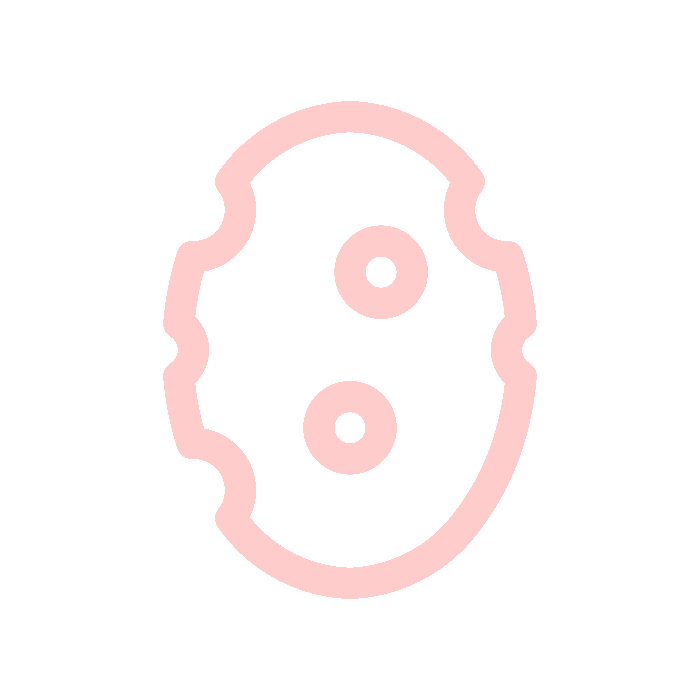
INTRAUTERINE SYSTEM-IUS
Intrauterine Method
An IUS is a small, flexible, T-shaped system that releases low levels of hormones and is placed inside the womb by your healthcare provider.
99 % Effective
Details
The intrauterine system (IUS) is a small, T-shaped device placed in your womb by your healthcare provider. It releases a steady amount of the hormone progestin each day. This low-dose progestin thickens the mucus in your cervix, making it difficult for the sperm to make their way to the egg. Progestin also acts to thin the lining of your uterus, so a fertilised egg won’t be able to implant. The IUS is one of the most reliable contraceptive methods and is 99.8% effective.
How to
Speak to your healthcare provider to determine if an IUS is the right contraceptive method for you. Once the IUS is inserted by a trained healthcare professional, you are protected from pregnancy for 3 to 5 years, depending on the make and model used. Once the IUS is removed, you are no longer protected and can fall pregnant.
Pros
It can be fitted at any time during your menstrual cycle, as long as you are not pregnant
It works for 3 to 5 years, depending on the brand, but can be removed at any time
It is suitable for women who want to avoid having to remember to take contraceptive pills or injections, and who want a long-acting, reversible contraceptive method.
It is one of the most effective contraceptive methods
It does not interrupt sex
Periods may become lighter, shorter and less painful
It is safe to use when breastfeeding
It is possible to become pregnant as soon as the IUS is removed
Cons
It has to be fitted and removed by a trained healthcare professional
Your periods may become irregular or stop completely, which may not suit everyone
You may experience irregular bleeding or spotting in the first 6 months of use
Some women may experience headaches, acne and breast tenderness
There is a small risk of infection when the IUS is inserted and removed
It does not protect you against sexually transmitted infections (STIs), such as HIV), so you may need to use condoms as well
Side Effects
You may experience:
Pain when the IUD is put in, and cramping or back aches for a few days after
Changes in your monthly bleeding patterns (especially in the first 3 to 6 months), including:
Longer and heavier monthly bleeding
Irregular bleeding
More cramps and pain during monthly bleeding
These changes in bleeding are normal and are not harmful. If you find them bothersome, speak to your healthcare professional.
Frequently Asked Questions
-
An intrauterine system (IUS) is a small, T-shaped contraceptive device that fits inside the womb (uterus) and releases the female hormone progestogen into the body.
-
Many women with an IUS will experience less and lighter bleeding after the IUS is fitted. Some women may not have any periods at all anymore.
-
The IUS was not invented for use as emergency contraception.
-
An IUS insertion is usually well tolerated by most women. Some women may experience pain and dizziness after insertion, which usually settles after resting for a short time. Normal pain killers or local anaesthesia may be applied to the uterine cervix before the insertion.
-
The IUS must be inserted by a trained healthcare provider, who will follow the necessary procedure to ensure it is correctly positioned. Occasionally, the muscular contractions of the womb during menstruation may sometimes push it out of place or expel it. Very rarely it can perforate the wall of the uterus. If a user of an IUS experiences any unusual bleeding, pain or discomfort, the doctor or healthcare provider must be informed as soon as possible.
-
Neither you nor your partner should feel the IUS during sexual intercourse. If you do, sexual intercourse should be avoided until your doctor or healthcare provider has checked that the IUS is still in the correct position.















CONTRACEPTIVE METHODS
CONTRACEPTIVE METHODS
-

CONTRACEPTIVE IMPLANT
1 or 2 small hormone-releasing silicone rods placed under the skin by a healthcare provider.
-

CONTRACEPTIVE INJECTION
The contraceptive injection is a shot of hormones that lasts for 1 up to 3 months.
-

CONTRACEPTIVE PATCH
A patch that sticks to the skin and releases hormones that are highly effective at stopping pregnancy.
-

CONTRACEPTIVE RING
A flexible plastic ring that is placed in the vagina by the woman and constantly releases hormones.
-

DIAPHRAGM
A diaphragm is a small dome that blocks the entrance to the cervix to stop sperm from entering the womb.
-

EMERGENCY CONTRACEPTIVES
Emergency contraceptives are hormone-based pills that are used in the event of accidental unprotected sex.
-

FEMALE CONDOM
A female condom is a sheath that is placed inside a woman’s vagina before sexual intercourse.
-

FERTILITY AWARENESS
Fertility awareness is the method of only having sex on the non-fertile days of your menstrual cycle.
-

INTRAUTERINE DEVICE
An IUD is a small, flexible, often T-shaped device wrapped in copper that is placed inside your womb by your healthcare provider.
-

MALE CONDOM
A condom is a thin film sheath that is placed over a man’s erect penis before having sex.
-

PULL-OUT METHOD
Pulling out (also called Withdrawal Method) requires no additional hormones or devices, just impeccable timing and a lot of luck.
-

SPERMICIDES
Spermicides affect the way sperm travels in the womb making it hard for them to move freely and fertilize an egg.
-

SPONGE
A sponge blocks the entrance to the cervix and releases spermicide, both together stopping sperm from entering the womb and fertilizing an egg.
-

STERILISATION
Sterilisation is the process of completely taking away the body’s ability to reproduce through surgery or minimal invasion.
-

THE PILL
The pill is a small tablet containing hormones that must be swallowed every day, at the same time.



